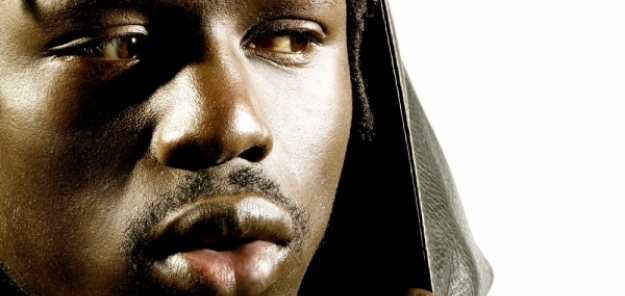
Emmanuel Jal – a former child soldier and hip-hop singer of worldwide acclaim – spoke to Alicia Sometimes at You Say You Want a Revolution: Emmanuel Jal Speaks, an event presented by the Melbourne Festival and The Wheeler Centre at The Arts Centre on Wednesday 19 October.
In 1991, Emmanuel Jal fled his home in Southern Sudan: the place where, in his words, “NGOs ran out of ideas”.
He describes Sudan as a country fed on aid. Even with the recent and undoubtedly exciting formation of the new republic of South Sudan, the region still face serious challenges. The new nation is overcrowded with refugees of oppression and trauma. One in three of its children are starving.
Yet, today South Sudan has the chance to break out of the cycle of violence that has engulfed it for decades, just as, with the help of aid worker Emma McCune, Jal escaped the violence in his own life.
But he never forgot what he left behind.
Jal’s “We want peace” music video was an international appeal for action against genocide.
Emmanuel Jal has travelled a long way. Years ago, the first time he encountered a flushing toilet he insisted on standing on the seat to avoid attack from snakes. Today he confidently travels the world with his story and his songs.
… a man would have to write a song to a lover if he ever wanted to get married.
As part of the You Say You Want a Revolution talks, Jal spoke of the importance of music and its unique ability to talk to the soul. The troubled soldiers of Sudan would sing “when the battle has been lost, when the battle has been won” during hard times. Even then, at his young age, he noticed the power these songs had over the men’s morale. Yet, he explained that they weren’t his first encounter with music. In his village, a man would have to write a song to a lover if he ever wanted to get married.
Jal describes African music as “the only music in the world you can dance to without having to know how to dance”.
His relationship with hip-hop has been a lot less smooth. He fondly remembers when US hip-hop was about more than just being knifed, or shooting; when it was about having fun. Yet today the culture is seen to be akin to one of violence. If music can speak to a young child’s soul, he wonders what idols like 50 Cent say to today’s youth. When the parents are busy, Jal says, the media raises the kids, and do we really want “Jay Z” or “Kylie Minogue” to be bringing up the next generation?
… Jal tries to make music that encourages people to think, not fight.
The gangster culture of hip-hop strikes a personal chord for Jal. His cousin became captivated by its perceived glamour. He was eventually arrested for a stabbing incident in the UK. Jal was angry because his cousin was a refugee: he had been given the opportunity to make a new life for himself and he traded it in – for nothing.
So Jal tries to make music that encourages people to think, not fight. Yet some have gone so far as to suggest that his music is too intelligent for commercial success. That it is in some way dangerous, because if people found out what was really happening in the world they would not stand for it: there would be a revolution.
In January this year Jal returned to Sudan to vote for independence.
His You Say You Want a Revolution discussion, although dealing with often terrible realities, was ultimately as light-hearted as a discussion about displacement and violations of human rights can be. Jal was a charming entertainer and, when coaxed into singing, filled up the theatre with a sort of awestruck silence.
When the conversation was opened up to the audience, he was asked: “is there hope?”
His answer was ambivalent. There is still a problem with corruption, which is deeply entwined in the political environment. The word for corruption has even become synonymous with the words “intelligent” and “wise”. Leaders need to learn to be responsible, Jal insists, not just with respect to their own advancement, but also with regard to the people whose lives depend on them.
… “you can actually speak your head and the next day … you might survive”.
Despite all the difficulties it faces, Jal reminds us there is now freedom in South Sudan and that “you can actually speak your head and the next day … you might survive”. This is a gift that cannot be underestimated for a people who have suffered a lifetime of silencing and oppression.
Some Sudanese are returning to the war-torn young nation seeing only a “real estate opportunity”. Yet many returning refugees and – as Jal noted throughout the talk – quite a few Australians, come with a view that “I have these skills, can I try and help?” For Emmanuel Jal, these are the people who bring strength to Sudan. Those who have escaped – who have made peace for themselves – can now make peace for the nation.
So yes, though the path to recovery is not without its own thorns, there is hope.
You can watch a recording of Emmanuel Jal’s You Say You Want a Revolution talk on the Wheeler Centre website.

